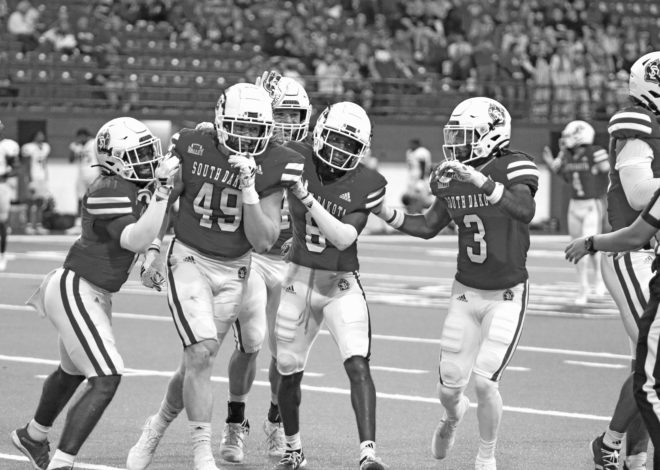
Student athletes receive help from academic advisers to ensure eligibility
Every student at USD has the tools to be academically successful, however, student athletes have a slightly different program that ensures they maintain eligibility.
A team of three full-time academic advisers and two graduate assistants manage the academic well-being of more than 350 athletes on campus.
One academic adviser, Taylor Chapman, who ran cross country and indoor and outdoor track for USD while he was a student, said athletes have certain requirements to stay eligible.
“The requirements as a freshman say that you need to maintain a 1.8 GPA from the NCAA to be eligible, but the institutional requirement is 2.0 GPA per term. If you’re under a 2.0 GPA then you are put on academic probation,” Chapman said. “There’s a bunch of different levels to this, so you can’t just think about doing the bare minimum per NCAA requirements, because if you do, then you’re going to get kicked out of school here. So it’s like a governing body with the NCAA being highest and they have their requirements, and then there’s the school’s requirements and then the team’s requirements.”
While team GPA’s are collected by the advisors, a pubic viewing of the team GPA’s is unavailable.
Not only do student athletes need to hit the required GPA, they also must pass a certain number of credit hours.
“At the end of each term, we collect the grades from athletes and then we’ll go over each student athlete and each team,” Chapman said. “At the end of their sophomore year, each student athlete has to hit 40 percent of their credits towards their degree, by junior year you have to hit 60 percent and senior year you have to hit 80 percent. It’s on a five-year plan just because so many kids redshirt nowadays.”
In order to maintain the proper GPA and complete the appropriate amount of credit hours to play their sport, Chapman said there are plenty of resources to ensure the academic success of student-athletes. One program set in place is referred to by athletes as “study tables” or “CAP,” which stands for Coyote Academic Pride.
“Our standard is that all freshman and transfer athletes must get six hours per week at CAP and then it’s dependent on each coach if they want to change that,” Chapman said. “After that first year, if you have a 2.5 GPA or higher cumulative, then you are done with CAP.”
While these are USD’s requirements for study hours, some coaches require additional hours or higher GPA’s. For example, the swim team coach requires eight study hours per week of and a 3.0 GPA after freshman year. Members of the men’s basketball team, on the other hand, need a GPA of 2.75 after their freshman year to be finished with CAP.
These study hours are just one way a student athlete’s academics are monitored.
There’s also an academic coaching program for athletes who need it. Athletic academic advisers judge an incoming freshman athlete’s need for this program based on high school test scores, grades and how far away from home the athlete is.
“I always tell them that we are here as advisers to make sure they have the resources they need to be successful,” Chapman said. “Whether it’s a student athlete who knows how college works and they can be successful on their own, or if it’s a student athlete who needs a little extra help, we can get them help whether it’s from the writing center or a math tutor or going to SI sessions. Just making sure they know those resources are available to them.”
While all students on campus have academic advisers, athletes have several additional requirements to remain eligible for athletics. Because of this, athletic academic advisers do their jobs a little differently.
“We have a lot more contact with our student athletes just because we do see them so much more often, like during the required study tables or in passing,” Chapman said. “We see them quite a bit compared to your everyday student who sees their advisor just once or twice a year for advising. Everybody has an adviser on campus, but I’d say we’re a little more hands on in the athletic department.”

